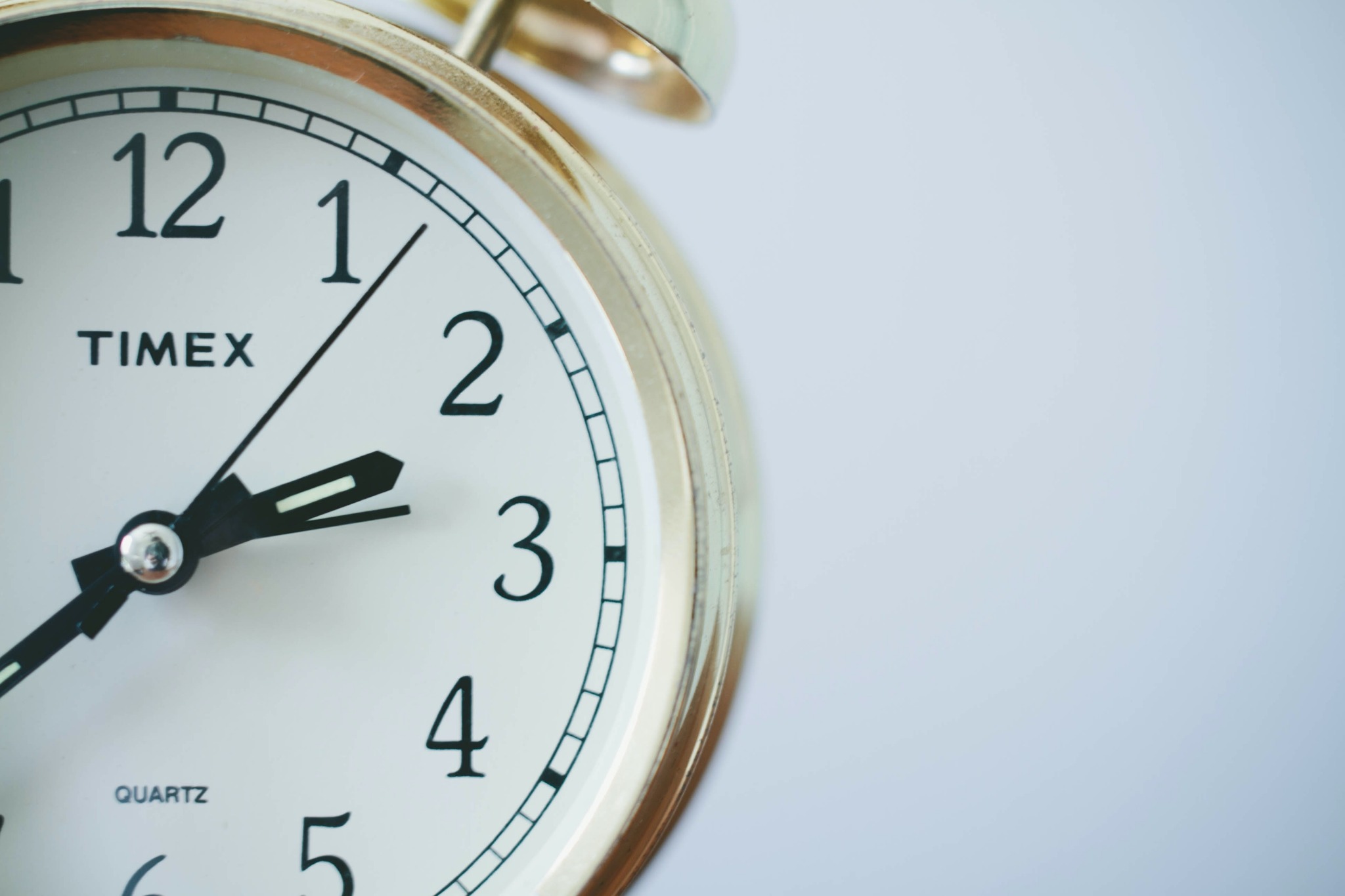What Do Clocks Have to Do With Time?

Photo by Sonja Langford on Unsplash
No, really. Have you thought about that?
We see clocks as inseparable from the concept of time, right? The connection is so deeply embedded into our minds that we don’t even question it. But think about it for a second. What is it that clocks do?
What Do Clocks Do?
Clocks do not measure time in the same way that thermometers measure temperature; clocks just tick at a certain rate, they don’t describe reality. From the wall clock in your kitchen to the most accurate and sophisticatedly engineered atomic clock in existence, all clocks have the same working principle: periodic motion. They simply count a recurring event with a known frequency.
Now, the nature of that recurring event varies from one type of clock to another: it can be the swinging of a pendulum or the turning of cogs and gears or, in the case of atomic clocks, the wiggling of atoms. But we shouldn’t let the word “atomic” intimidate us: just like their counterparts, atomic clocks do nothing but count cycles. In their particular case, they count how many times an atom wiggles back and forth. These wiggles are natural oscillations related to atom processes that happen to be so regular and occur at such a high frequency, that we can use them as a very reliable time base.
Is Time Real?
So if a clock is just a rhythmic man-made object calibrated to tick at a fixed arbitrary rate, what makes scientists establish a connection between clocks and the actual flow of time? Is time dilation real? Does time really slow down for someone travelling near the speed of light?
We could go even further and question the very existence of time as a physical entity: do we have any evidence for it? Certainly not from clocks.
We think of ourselves as moving along an imaginary one-directional timeline, and yet we have no concrete evidence of that being the case. Time is an intuition that we have. The sun rises and then sets, one year comes after another, we age and eventually die, and time is the cause of all these changes, right? What else could it be? But when you come to think of it, we don’t experience time itself, all we experience, and all we have proof of, is change and change alone. Time exists only in our minds.
However, there is no need to go so far as to deny the existence of time to perceive the illogicality of the idea of clocks and time being connected. So for the sake of argument, let’s assume that time has in fact a physical existence outside our minds.
Exactly, What Does Time Dilation Mean?
Briefly put, the idea of time dilation is that the flow of time is not a constant, but instead, it is affected by both speed and gravity. As stated in Einstein’s theories of special and general relativity, on the one hand, from the perspective of a stationary observer here on Earth, the faster a clock moves, the slower it will tick; on the other hand, the farther it gets from the gravitational pull of Earth, the faster it will tick.
The whole concept of time dilation is based on the assumption that, in Einstein’s own alleged words: “Time is what clocks measure.” Yet the idea of time and clocks being physically connected does not hold up. Clocks tell us nothing about time. Inferring that speed and gravity affect time itself rather than the instruments doing the measuring flies in the face of reason and simplicity. If we compare clocks at different velocities and altitudes, and we get different readings, then the instrument (i.e., the clock) is changing, not time.
What Is the Bottom Line of All This?
That we shouldn’t be afraid to question the unquestionable. Scientists, from Einstein on down, can get so lost in the math, that sometimes common sense goes out the window. And since we are at it, maybe it’s about time we reconsidered our blind faith in almighty Mathematics as a means to explain the Universe. We tend to overlook that Mathematics does not describe the true nature of objective reality, but the quantitative relationships among the contents of our perceived reality. After all, Mathematics is a product of the human mind.
